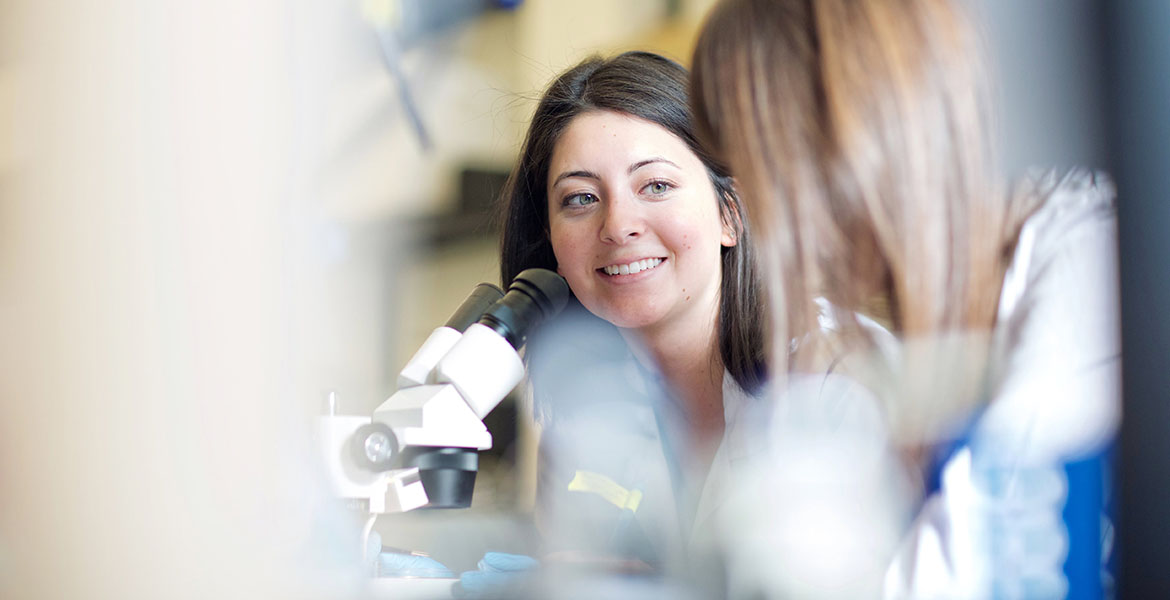Undergraduate Research Resources and Supports

There are many ways to get involved in research at UBC Okanagan, and the following will help support you in exploring and navigating what options may work best for you.
Research Opportunities by Faculty
Faculties Schools and Departments are your starting point for specific information about research initiatives and opportunities in each discipline.
Visit the Research Website: https://fass.ok.ubc.ca/research/
Research Opportunities and Information by Department
Review specific research themes, institutes and labs, opportunities for undergraduate students, and awards by department.
Visit the Research Website: https://science.ok.ubc.ca/research/
Research Opportunities and Information by Department
Review specific research themes, institutes and labs, opportunities for undergraduate students, and awards by department.
Visit the research website: https://management.ok.ubc.ca/research/
- See the Undergraduate Student Resources for research awards and supports for students.
Visit the research website: https://fhsd.ok.ubc.ca/research/
Research Opportunities and Information by School
Review specific research themes, institutes and labs, opportunities for undergraduate students, and awards by School.
Visit the research website: https://fccs.ok.ubc.ca/research-creation/
- Check Funding and Awards for undergraduate research funding opportunities in FCCS.
Visit the Research and Partnerships page to learn more about research in the Okanagan School of Education: https://education.ok.ubc.ca/research-partnerships/
- For student awards and scholarships in the Okanagan School of Education visit Student Resources
Visit the research website: https://engineering.ok.ubc.ca/research/
- Capstone is a fourth-year course running from September to April during which students work in teams to solve engineering problems. Learn more about the Undergraduate Capstone program here.
- Learn more about awards for undergraduate research in Applied Science.
- Check out the Engineering Researcher Reference Guide
Visit the research website: https://smp.med.ubc.ca/research/
See the Student Research page for research-related opportunities for students.
Research Opportunities Abroad
As a UBC student, you are eligible to get involved in research as part of your academic studies at many of UBC’s 150 partner universities through the Go Global program.
Undergraduate Research Resources
Enroll in the self-access Canvas course developed in partnership with the Centre for Scholarly Communication. Modules are designed to help you learn more about research opportunities at UBC Okanagan and support you through the process. Topics include approaching opportunities, time and project management, proposal and research writing, academic and scholarly integrity and more. Click the link below to join the course and get connected.
Awards, Funding, and Programs Supporting Undergraduate Research
There are a number of awards, programs, and funded opportunities for research at the undergraduate level at UBC Okanagan.
Natural Sciences and Engineering Research Council (NSERC) funding is available for undergraduate students in the School of Engineering, the Irving K. Barber Faculty of Arts and Social Sciences, the Irving K. Barber Faculty of Science, and the School of Health and Exercise Science within the Faculty of Health and Social Development.
For more information, visit your Faculty’s specific NSERC-URA information pages:
Receive mentorship from a UBC Okanagan faculty or staff member while participating in a paid work experience on campus. Many opportunities are research related and can complement your studies. Learn more about the application process and important deadlines here.
A variety of undergraduate research awards and opportunities are available to students through Faculties. Please see specific resources below for further details, timelines, and application processes.
- Faculty of Creative and Critical Studies
- Irving K. Barber Faculty of Arts and Social Sciences
- Irving K. Barber Faculty of Science
- Faculty of Management
- School of Engineering
- Okanagan School of Education (awards and scholarships)
- Faculty of Health and Social Development:
The Indigenous Research Mentorship (IRM) Program is an opportunity for self-identified Indigenous undergraduate students to gain practical research and laboratory experience while working with a UBC Okanagan faculty member or post-doctoral fellow. Find further information on the Indigenous Research Mentorship Program here.
The Co-op programs at UBC Okanagan are open to undergraduate students in Arts, Fine Arts, Engineering, Health & Exercise Sciences, Management, Media Studies, Sustainability, and Science. Students of all skill-sets are eligible to participate in co-op and research-related work placements are possible though this program. To learn more visit: Interdisciplinary Co-op or Applied Science Co-op.
makerspace UBCO is an interdisciplinary, peer facilitated work space designed to foster creative thinking through design and making, serving as a hub for innovation, cross-discipline collaboration and entrepreneurship. Open to all students in all disciplines, it is a space to incubate, design, prototype and fabricate ideas. Learn more through the makerspace UBCO website.
Sometimes to get involved in something you are passionate about requires some financial assistance. Visit the campus life funding opportunities to explore a variety of options that may be possible: